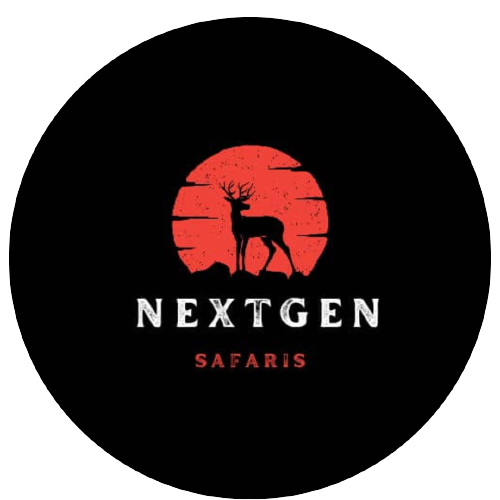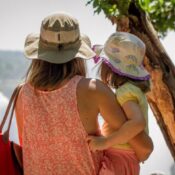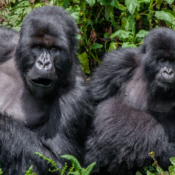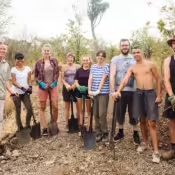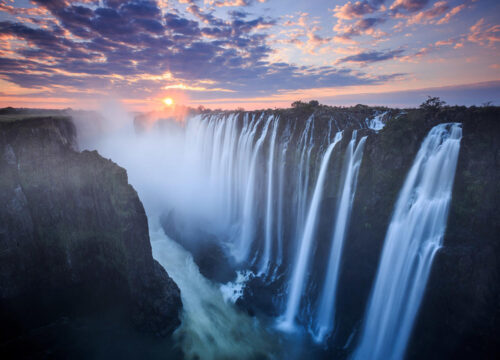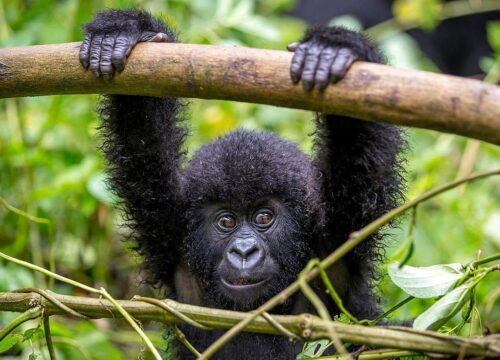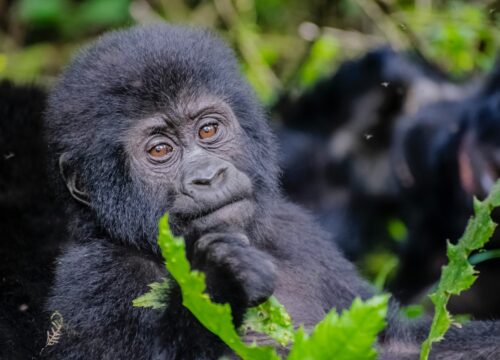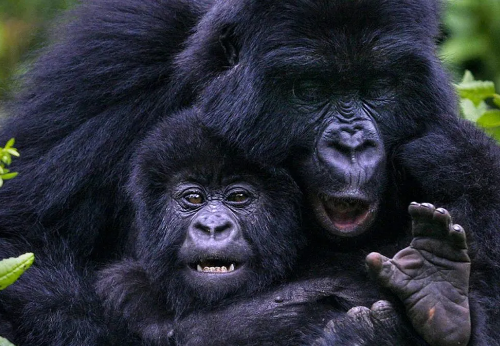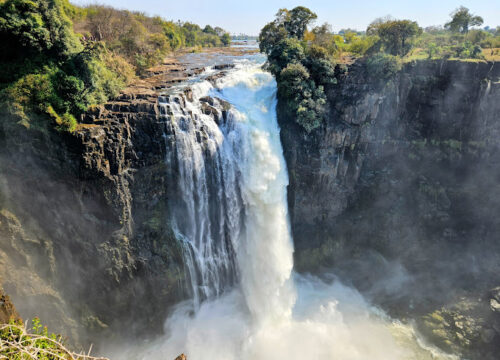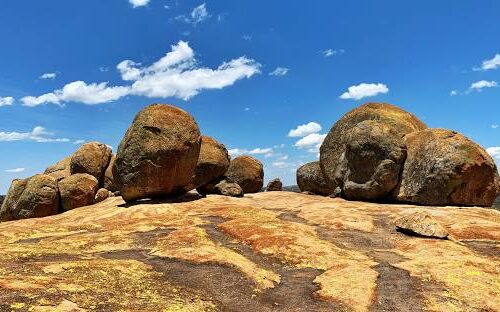Timbavati Nature Reserve
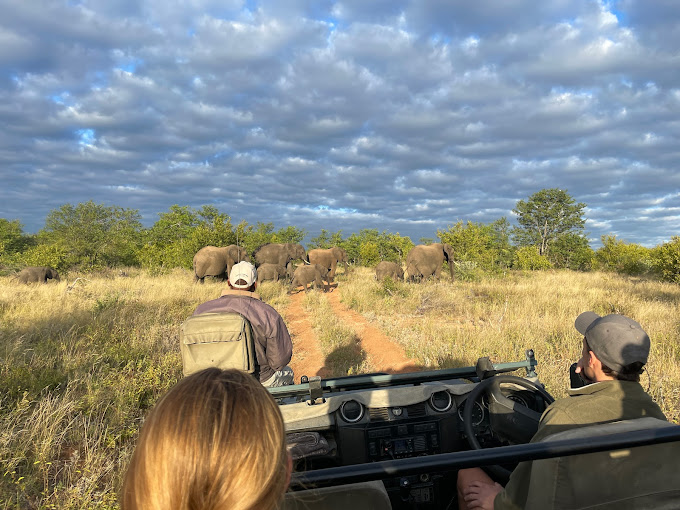
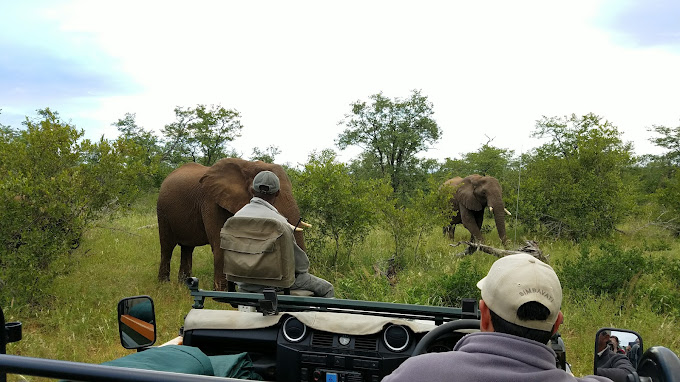
Timbavati Nature Reserve Overview
Timbavati Nature Reserve is a private nature reserve with open borders to the famous Kruger National Park. It is part of the Greater Kruger ecosystem, which offers an authentic wildlife experience. All of the Big Five animals are easily spotted including the elusive leopard. The park is famed for its rare white lion.
Pros & Cons
- Good wildlife viewing with all of the Big Five present
- Day and night drives and walking safaris available
- Off-road driving in open vehicles
- Part of a very large ecosystem
- Several lodges and self-catering camps to choose from
- Less busy than Sabi Sands
- Emphasis on ticking off the Big Five species
- Big cat sightings are not quite as good as in Sabi Sands
Timbavati Nature Reserve Wildlife
Wildlife viewing tends to be very good – Timbavati Nature Reserve boasts all the usual large safari animals including elephant, buffalo, kudu, zebra, wildebeest, giraffe, impala, waterbuck and their predators: lion, leopard, cheetah and hyena. Big cats are easy to spot, but rhino is more hit-and-miss. African wild dog are regular visitors to the property. The white lion are very rare, but some lighter colored lions carrying the gene might be spotted.
Timbavati Nature Reserve Scenery
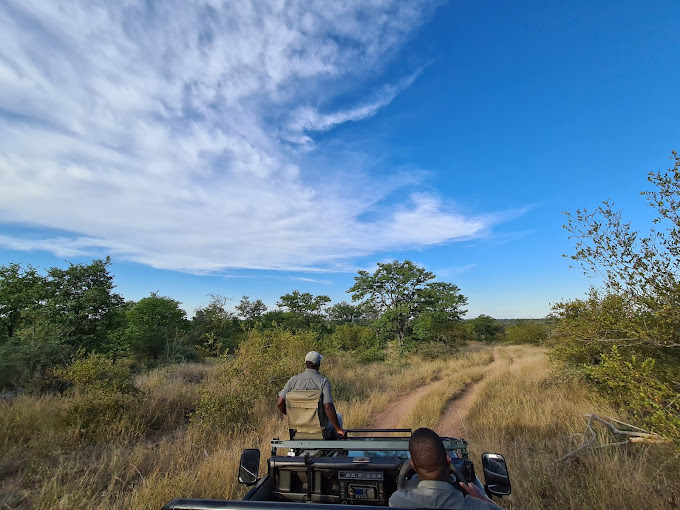
The main habitats in the Timbavati Nature Reserve are grassy plains and mixed woodland. In the rainy season, the vegetation tends to be quite thick, but this doesn’t interfere much with the wildlife viewing because of the off-road driving permits.
Timbavati Nature Reserve Weather & Climate
Cool mornings and warm afternoons characterize the Dry season (May to September), with its low-key winter climate. Don’t underestimate how cold it can get in the morning, though. You should remember to dress warmly, or you’ll struggle to enjoy the game drives. Summer (October to April) is hot and humid.
Best Time To Visit Timbavati Nature Reserve
Timbavati Nature Reserve offers impressive wildlife watching in the Dry season, from May to September, when animals share the local waterholes and rivers. The landscape is green and lush in the wetter months (October to April), and this time is best for bird watching.
Wildlife & Animals – Timbavati Nature Reserve
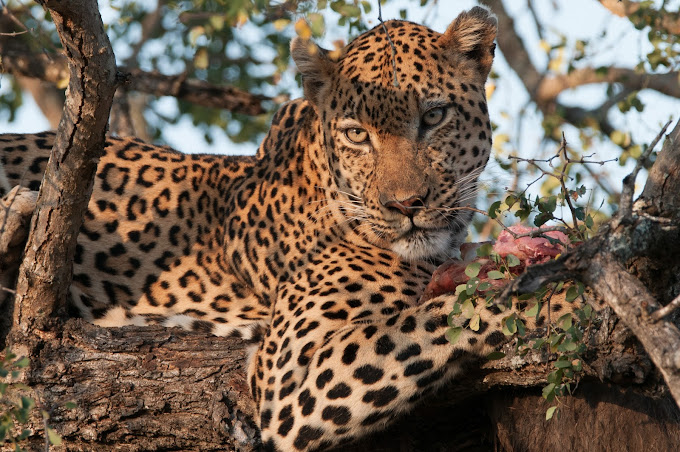
Timbavati Nature Reserve is part of the Greater Kruger ecosystem, where animals roam throughout the bordering parks and reserves. This means all main safari animals can be seen. Timbavati Nature Reserve is the closest competition to the better-known Sabi Sand Game Reserve, but it is a bit quieter and wilder. All of the Big Five can be spotted, and sightings are of the highest quality.
Timbavati Nature Reserve Wildlife Highlights
Timbavati Nature Reserve is known for its large herds of buffalo, while lion and elephant are found in good numbers as well. The reserve’s claim to fame is its white lions, but pure white lions haven’t been seen for a long time. You might be able to see some very pale individuals that carry the gene. Cheetah and leopard are seen less often than in nearby Sabi Sands.
Best Time for Wildlife Viewing in Timbavati Nature Reserve
The dry months of June to September is peak wildlife viewing time in Timbavati Nature Reserve. August to September is a desirable time to visit, as the temperature warms up and sightings are made even easier because animals gather around predictable water sources.
Birds – Timbavati Nature Reserve
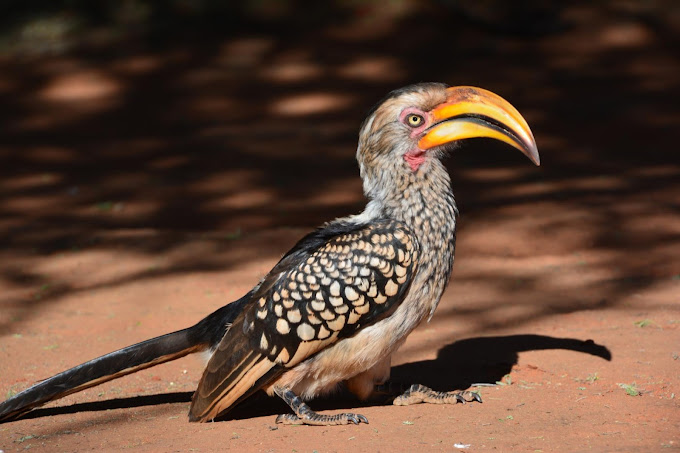
With more than 350 bird species recorded, Timbavati Nature Reserve is a birders paradise. On game drives, the emphasis is mostly on mammals, and birders sharing a vehicle with non-birders might well be in for a disappointing experience. Serious birders should consider booking private activities. The combination of open vehicle drives and walking safaris is ideal to check off many species, while night drives might offer a few nightjars, coursers and owls. Migratory birds are present from November to April.
Birding Specials–Treats for Avid Birders
- Collared pratincole
- Harlequin quail
- Horus swift
- Kurrichane buttonquail
- Little bittern
- Montagu’s harrier
- Pallid harrier
- Plain-backed sunbird
- Southern black flycatcher
- Southern carmine bee-eater
- White-headed lapwing
- Woolly-necked stork
Best Time for Bird Watching in Timbavati Nature Reserve
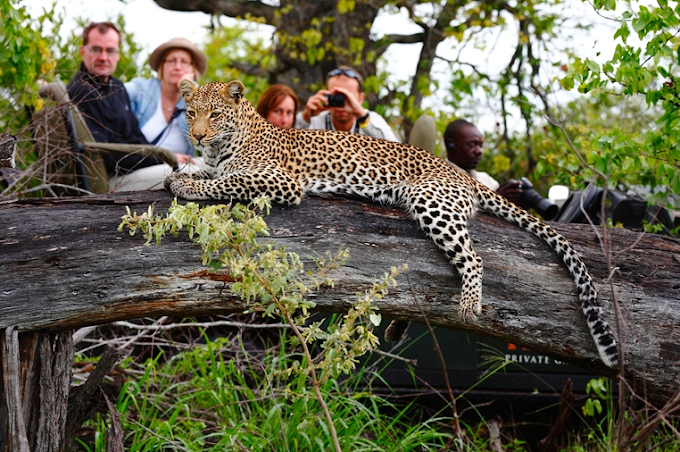
Timbavati’s bird watching is good all year, but a premier birding experience comes with the migration of birds from Eurasia and elsewhere in Africa, from November through April. The drier months of June to September makes for the best general wildlife viewing.
Weather & Climate –Timbavati Nature Reserve
Timbavati Nature Reserve’s winter and summer are opposite to the seasons in Europe and North America. The Wet season occurs during the summer months (October to April), while the Dry season occurs during the winter (May to September). The summer is hot and humid. Winter is dry and mild, with it cooling off substantially during the night. Warm clothing is essential for early morning game drives.
Dry Season–May to September – Winter
Humidity is low, and there is virtually no rainfall during the winter months. Permanent water sources attract animals as there is little water in the bush.
- May – This is a month of transition marking the end of summer. Temperatures typically cool off to 12°C/54°F in the morning and 28°C/82°F in the afternoon.
- June, July & August – Game drives in open vehicles will be cold in the morning, as it averages around 11°C/52°F. It would be wise to bring warm clothing. The afternoons are clear and pleasant with an average temperature of 25°C/77°F.
- September – The first rains bring relief to the drought-like conditions, and the temperature builds to an average of 27°C/81°F in the afternoon. Mornings become warmer with an average of 15°C/59°F.
Wet Season–October to April – Summer
Humidity can make the heat unbearable during the summer months. Though daytime temperatures average 31°C/88°F, it is not unusual for peaks to reach well over 40°C/104°F. Afternoon thunderstorms occur but seldom last all day.
- October & November – Rain frequency increases, primarily in the afternoon. Temperatures between 17°C/63°F in the morning and 30°C/86°F in the afternoon are normal.
- December, January & February – Torrential rains during the afternoon are common, making humidity very high. These months are the hottest and the wettest of all. Afternoon temperatures average 33°C/91°F, but temperatures as high as 40°C/104°F are not unusual.
- March & April – Rainfall subsides as cooler weather sets in. The month of April has pleasant, clear weather with very little humidity. Nights cool to around 15°C/59°F but are still temperate. The daytime average is 32°C/90°F.
Getting There – Timbavati Nature Reserve
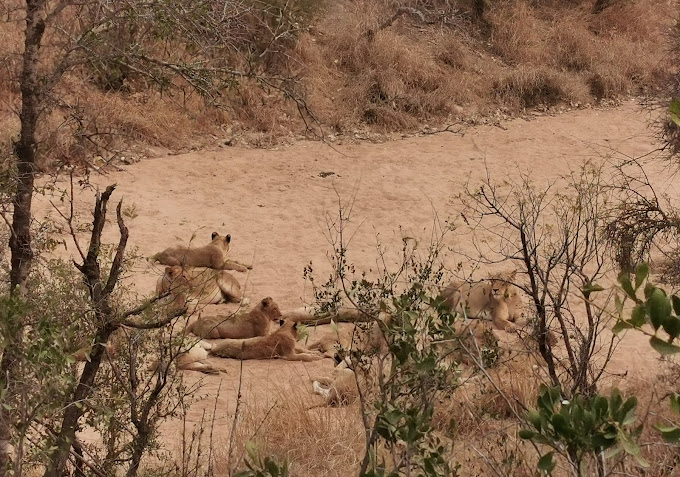
Visitors from abroad usually fly into O.R. Tambo International Airport (JNB) in Johannesburg. From here, Federal Airlines flies twice daily to Timbavati Nature Reserve.
Alternatively, you can take a connecting flight from Johannesburg to Hoedspruit’s Eastgate Airport (HDS). The reserve is only about 15km/9mi from the airport, and your accommodation will organize a transfer.
Renting a car in Johannesburg and driving to Timbavati is another option. The reserve can be found on the R40 near Hoedspruit, west of Kruger National Park. The 450km/280mi drive takes nearly 5 hours*.
Airlines & Ticket Prices
Please check Skyscanner to see which airlines can take you to O.R. Tambo International Airport (JNB), and what tickets would cost.
Domestic Flights
If you wish to book a domestic flight, there are several carriers to choose from:
- Federal Airlines (Flies to Timbavati)
- SA Airlink (Flies to Hoedspruit)
- CemAir (Flies to Hoedspruit)
- FlySafair (Flies to Hoedspruit)
Malaria & Safety – Timbavati NR
Safety
In our opinion, as most parks and reserves in South Africa, Timbavati Nature Reserve is a safe place. However, when visiting towns and cities in South Africa, normal safety precautions should be taken. Read ‘Cities & Urban Areas: Safety Precautions’ below for more information. When following these precautions, you shouldn’t have any crime issues during your holiday.
Malaria & Vaccinations
Malaria is present in Timbavati Nature Reserve, but the risk is small and mostly present during the wet summer months (October through April). It is advisable to wear DEET-based mosquito repellent and to take antimalarial medication. In addition, several vaccinations are recommended when traveling to South Africa – please get advice from your travel clinic.
Wildlife Viewing
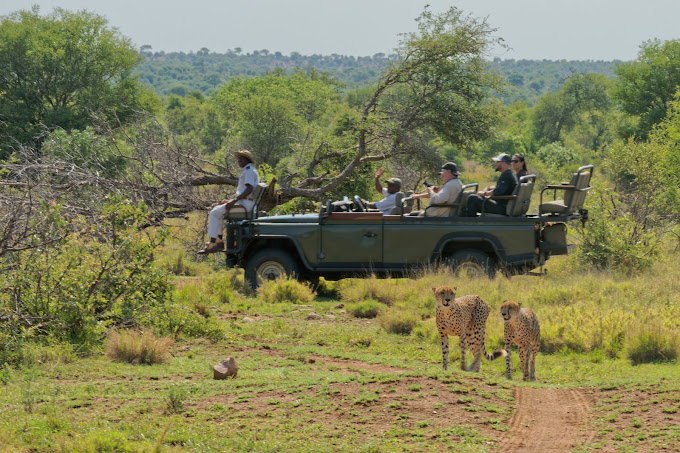
Wildlife viewing is very safe as long as you listen to the advice given by your expert guide. Incidents with wild animals are extremely rare. For more information, please read the ‘Wildlife Viewing Safety Precautions’ below.
INQUIRE NOW
GENERAL INFORMATION ON A SOUTH AFRICA SAFARI
ENTRY REQUIREMENTS:
All visitors to South Africa must have a valid passport with at least 4 consecutive blanks pages. Any applicable visa and/or relevant documentation are the responsibility of the traveller. For further information on Visa requirements visitors are advised to contact their nearest South African Embassy or Consulate.
LANGUAGE:English
TIME: GMT +3
VOLTAGE: 220 Volts/AC50Hz. Sockets are UK style, 3 pin square plugs. Power is from the government in the city/major towns and generator with inverter back up in the Safari Lodges and Camps.
CURRENCY: Foreign currency must be changed at the Bank, Bureau de Change, and Hotel/Safari lodge/Camp/Resort. Major Credit Cards, Master card, Visa, American Express, are usually accepted throughout the country. Where credit cards are accepted, the payment will normally be recorded in US$ regardless of the card’s default currency.
CLOTHING: Dress is mainly informal and should be comfortable as well as practical. Something warm should be brought along for early morning and evenings. Safari clothes are available from hotels/lodges/camps.
BAGGAGE: Where possible, travel light. Baggage space on safari is limited to medium suitcase or soft bag per person plus reasonable amount of hand luggage. There is 15 Kilogram per person limit on all flights to the wildlife sanctuaries. Excess luggage must be stored in your arrival hotel.
WATER: You will find many different of opinion of what is safe and what is not. We recommend for peace of mind, to drink local Bottled Mineral water. It is important to drink plenty of water especially during the hotter months. We would recommend that guests drink at least 2 to 3 liters of water per day to limit the effects of dehydration.
HEALTH; East Africa is a safe and secure destination; however, it is a good idea to take a few precautions. Kindly consult your GP or local doctor at least 6 weeks before you travel, with regards: Malaria prophylactics. East Africa is a known malaria area and preventive measures are essential. You are advised to take one of the recommended anti-malarial drugs. Be sure to wear long sleeved shorts and trousers after sunset and spray the exposed parts of your body with a mosquito repellent spray Remember to protect yourself from direct sun rays with sunscreen cream or safari hat.
DIETARY REQUIREMENTS: For those guests with specific dietary requirement, please ensure we are notified prior to travel
GRATUITIES: As a guideline and dependent on how happy you are, we would suggest the following: The General Hotel/Lodge/Camp Staff – Approximately U$ 10.00 per person per day Driver Guides – Approximately US$ 15.00 to US$ 20.00 per person per day.
PHOTOGRAPHY: Please be careful when photographing public buildings, airports, bridges, the national flag and people in uniform. Ensure that you have sought permission before photographing local people and their villages. If in doubt, please check with your guide.
-
Book a Customized Safari
Read about
10 Things you Should NOT DO on an African Safari.
What to expect on a safari in Uganda.
Bwindi Impenetrable National Park
How to Choose the Best Tour Operate for Your Safari in Africa
12-Day Gorilla Tracking in Bwindi
Some of our Gorilla and wildlife Safaris
1 Day Jinja Ultimate tour Experience
1 Day White Water Rafting in Jinja
3 Days Bwindi Gorilla Habituation via Rwanda
3 Day Birding Safaris and Photography in Uganda
3 Day Safari to Queen Elizabeth National Park
3 Day fly in Gorilla Trekking Safari from Masai Mara
3 Day Grand Gorilla Trekking Safari
4 Day Chimpanzee and Gorilla Trekking Safari
Recent Posts
One-Way Trip from the UK to Victoria Falls
One-Way Trip from the UK to Uganda
Tours for Groups and Families at Victoria Falls
Conservation Programs for Local Wildlife at Victoria Falls
Quick booking process
+256781282344
+256755922154
